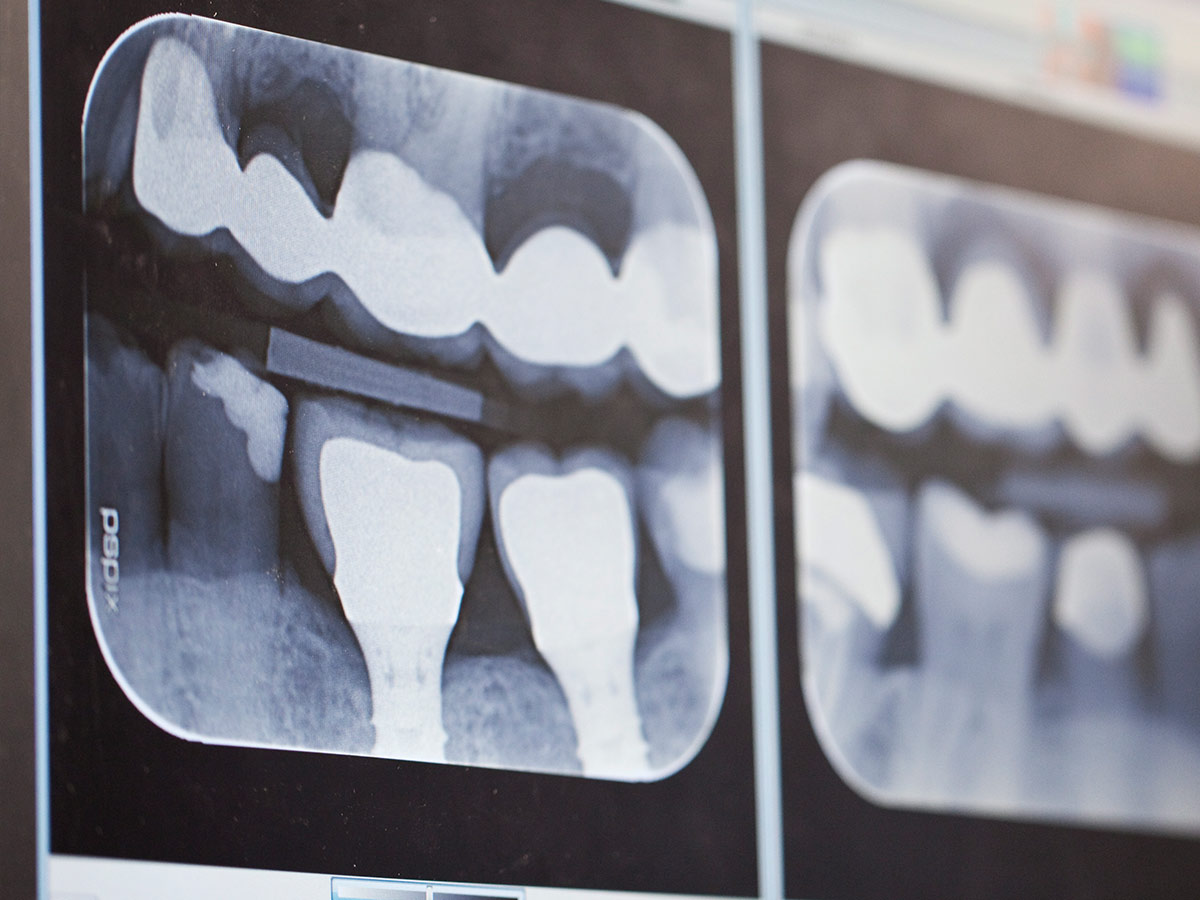
What are Dental Implants?
A dental implant is a titanium fixture that is used to replace the roots of a missing or extracted tooth. The implant is used as an anchor to support a replacement tooth or teeth. Implants are the gold standard in tooth replacement, they are independent of the other teeth in your mouth and most closely resembles the form and function of a natural tooth.

If you have any further questions please ask a member of the team and we will
be more than happy to answer any of your queries or visit or visit www.adi.org.uk
What are the benefits?
- Some people have real difficulties with removable dentures. Implants can overcome these difficulties, in particular for eating and speaking properly and they may improve appearance. If a denture is necessary, implants can greatly improve stability. People will not be able to see that your teeth are supported by implants. Implants can ensure that healthy teeth need not be used as supports when bridging gaps. They can be used in place of bridges, for example when adjacent teeth may not be strong enough to support a bridge or if patients have spaced teeth.
Are they safe?
- Dental Implants are an extremely safe and efficient treatment method. There is extensive scientific research and evidence to support their safe use. Implants have been an accepted form of treatment in the mouth for over 3 decades.The materials used in implantology are proven and tested to be biocompatible with the human body. Successful implant therapy results in a well-integrated functioning tooth.
What will my dentist do?
- Your dentist will tell you about the stages of treatment, who would be carrying out each stage and the timetable for completing treatment.This is what will happen:
- Bone is carefully exposed in the jaw where the tooth is missing. Then a channel is created and the implant is inserted within. This is usually done under a local anaesthetic, but sometimes sedation or a general anaesthetic is necessary. The gum is then secured over the implant and it’s left to heal for several months. This allows the bone and the implant to integrate and increase stability.
- A second procedure is then planned, in which replacement teeth are mounted onto the implant. This requires a small incision the gum above the implant. Once the soft tissues have healed, the replacement teeth may be fixed permanently or attached in a way that lets you remove them for cleaning. The replacement teeth might be single or multiple, this is dependent on your individual needs.
Are implants for me?
- You should discuss with your dentist whether implants would be right for you. Patients need to have healthy gums, and enough jawbone to take the implant that supports the replacement teeth although techniques are available to add additional bone if needed. They must also be prepared to maintain good oral hygiene and visit the dentist regularly. Implants involve minor surgery over a period of several months. Recovery is often quick and uneventful as long as you follow the post operative instructions provided by your dentist.Implant patients need to be in good general health. Some chronic diseases, such as diabetes, osteoporosis or chronic sinus problems, could interfere with healing and make implants more likely to fail. Make sure that you tell your dentist about any medicines that you take regularly, and about your smoking habits. Smoking may well shorten the life of your implant.
Are they expensive?
- Successful implant therapy requires high levels of skill and training and the costs do reflect this. Expensive components are also required to minimize risks and improve success rates. The expense of treatment should be weighed up against the extra quality of life that implants can provide when compared to less expensive alternatives.Individual cases differ greatly, so much so that a one price fits all approach is not possible. Your dentist can give you an idea of what may be required and the associated costs based on similar procedures conducted in the past. We will always give you a written quotation once we have conducted a consultation and reviewed any necessary diagnostic tests that have been carried out.
Our credentials
- Dr Nash Pradhan BDS, DipImpDent RCS(Eng), MJDFRCS(Eng), is a Dental and Implant surgeon, he holds a Bachelor of Dental Surgery from Newcastle University and has successfully gained the much-coveted Diploma in Implant Dentistry and Advanced Surgical Certificate at the Royal College of Surgeons. He has also gained the Diploma of Membership of the Joint Dental Faculties at the Royal College of Surgeons, England. Nash is passionate about providing the best and safest dentistry available, so the general and dental health of his patients is paramount. With this in mind he stays ahead of the latest developments and updates his skills and qualifications through academic study, conferences and seminars whenever possible. He has recently undertaken courses and further training both at home in the UK and abroad to allow his patients to have the benefits of the very latest advances and techniques in this ever advancing field of modern dentistry. Feel free to ask about this at your next appointment.
Subscribe to The Dental Surgeons for updates and offers
Stay in the loop with our monthly round-up of special offers, we promise we won’t spam you or share your email address.
WIMPOLE ST. W1
Drop on in
22 Wimpole Street
London, W1G 8GQ
Give us a call
Surgery: +44 20 7580 4580
Emergencies: +44 20 7580 4580